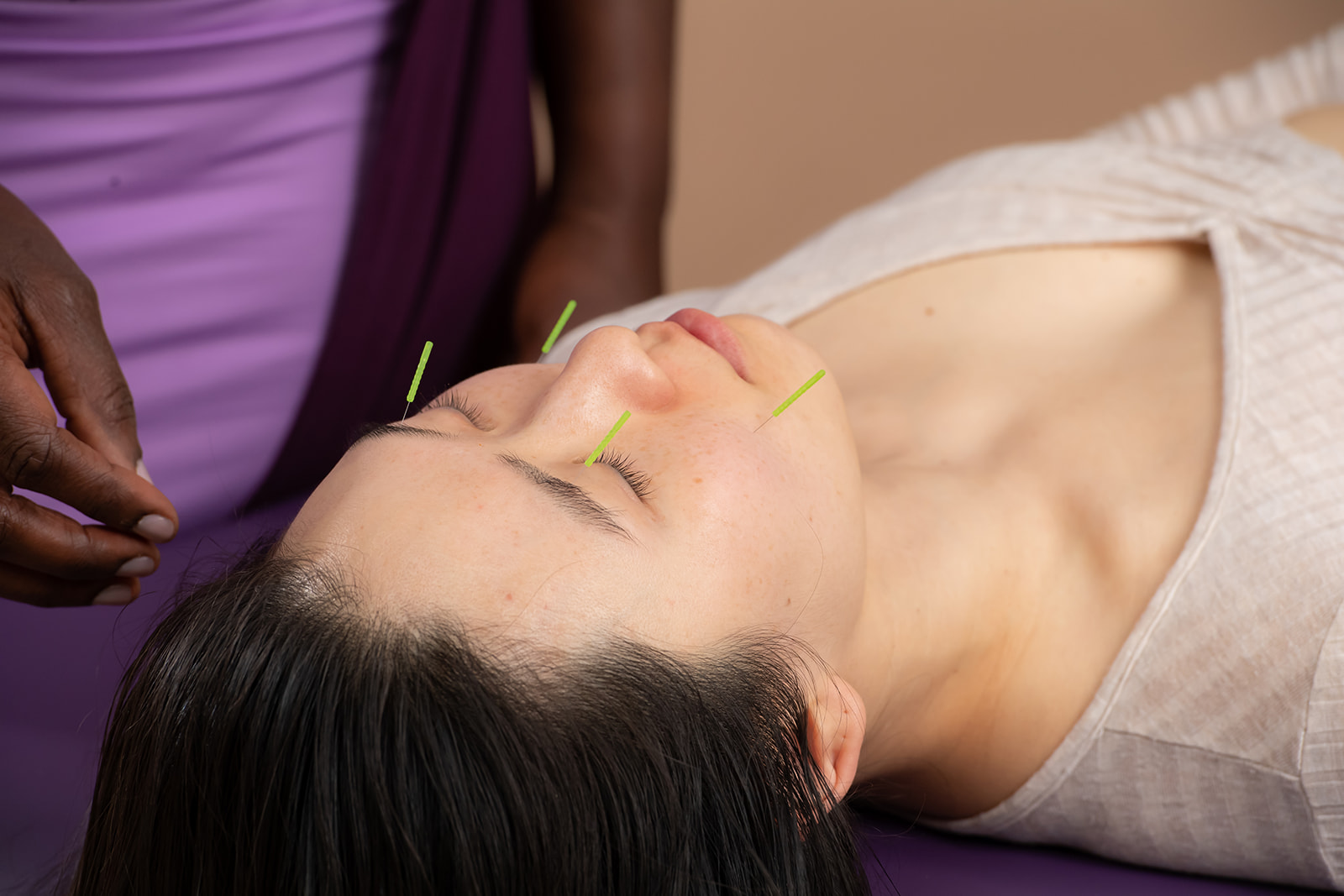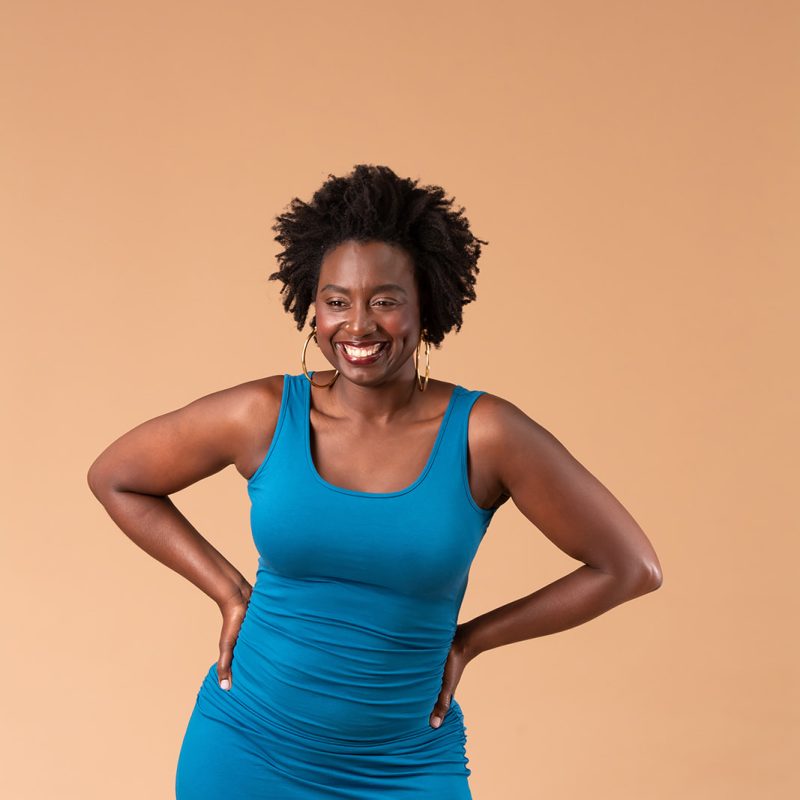
Share
In this Article
Article Key Takeaways
| Topic | Summary |
|---|---|
| ADHD in Women | ADHD in women is often underdiagnosed, with symptoms manifesting differently than in men. Look for signs of inattention, emotional dysregulation, and internal restlessness. |
| Hormonal Impact | Midlife hormonal changes can exacerbate ADHD symptoms. Be aware of increased difficulty with focus and organization during perimenopause and menopause. |
| Misconceptions | High-functioning women can have ADHD. Success doesn’t rule out ADHD; many women are skilled at masking symptoms. |
| Societal Pressure | Expectations of perfectionism can delay diagnosis. Recognize that struggling with organization doesn’t mean personal failure. |
| Healthcare Provider Role | Some providers may miss ADHD in women. Advocate for yourself and seek a provider knowledgeable about ADHD in adult women. |
| Self-Esteem Impact | ADHD is not a moral failing. Challenge negative self-perceptions and seek support to build self-esteem. |
| Common Symptoms | Watch for overlooked symptoms like difficulty following conversations, losing items, and internal restlessness. |
| Research Gap | Be aware that diagnostic criteria may not fully capture female ADHD experiences. Stay informed about emerging research on ADHD in women. |
| Diagnosis Delay Impact | Late diagnosis can affect mental health. Seek help if you’re experiencing chronic stress, anxiety, or depression. |
| Everyday Presentation | ADHD in women may manifest as complex coping systems, time management issues, and feeling overwhelmed by daily tasks. |
| Long-Term Effects | Untreated ADHD can impact career progression and relationships. Early diagnosis and treatment can mitigate these effects. |
Recommended Service |
Acupuncture can complement traditional ADHD treatments, potentially helping with stress reduction and overall well-being. Consider it as part of a holistic approach to managing ADHD symptoms. Read More |
As the founder of CARRINNA and a Joyful Aging Expert, I’ve seen firsthand how ADHD in women can slip under the radar for decades. It’s a topic close to my heart, and one that deserves our attention. In this article, I’ll dive deep into why so many women don’t receive an ADHD diagnosis until midlife, and what we can do about it.
The Hidden Struggle: ADHD in Women

ADHD in women is often a silent battle, fought behind closed doors and within the confines of our own minds. It’s a condition that affects millions, yet remains woefully underdiagnosed in the female population. In fact, a staggering 50% to 75% of women with ADHD go undiagnosed. This isn’t just a statistic; it’s a reflection of countless lives lived in unnecessary struggle and self-doubt.
The Historical Blindspot
For years, ADHD was seen as a “boys’ disorder.” This misconception has led to a significant gender gap in diagnosis and treatment. Did you know that boys are three times more likely to be diagnosed with ADHD than girls? Even more shocking, girls are typically diagnosed with ADHD five years later than boys – boys at age 7, and girls at age 12.
This historical blindspot has cast a long shadow, leaving many women to grapple with undiagnosed ADHD well into adulthood. It’s not uncommon for women to receive their diagnosis in their late 30s or early 40s, often after one of their children is diagnosed. This delay can have profound impacts on a woman’s life, affecting everything from career progression to personal relationships.
Symptoms and Presentation: Why Women Slip Through the Cracks
The Subtle Signs of ADHD in Women
When we think of ADHD, we often picture a hyperactive child bouncing off the walls. But ADHD in women often presents differently. The symptoms can be more subtle, making them easier to overlook or misattribute to other causes.
Women with ADHD tend to exhibit more inattentive symptoms. These can include:
- Difficulty staying focused on tasks
- Struggles with organization and time management
- Forgetfulness in daily activities
- Trouble completing projects or following through on commitments
These symptoms might not scream “ADHD” to the untrained eye, but they can significantly impact a woman’s daily life and self-esteem.
The Masking Effect

Many women with ADHD become experts at masking their symptoms. They develop coping mechanisms and strategies to hide their struggles, often out of a desire to meet societal expectations. This masking can make it even harder for healthcare providers to recognize ADHD, leading to further delays in diagnosis.
The Hormonal Rollercoaster
Here’s where things get really interesting – and complicated. Hormonal changes throughout a woman’s life can have a significant impact on ADHD symptoms. This is particularly true during perimenopause and menopause.
As estrogen levels fluctuate and eventually decline, many women experience an exacerbation of ADHD symptoms. This can lead to a greater sense of overwhelm and cognitive impairment. It’s not uncommon for women to seek help during this time, thinking they’re experiencing early-onset dementia or severe anxiety, only to discover that ADHD has been the underlying issue all along.
The Diagnostic Maze: Challenges in Identifying ADHD in Women
Misdiagnosis: A Common Pitfall
One of the biggest hurdles in diagnosing ADHD in women is the high rate of misdiagnosis. Many women with ADHD are initially diagnosed with anxiety, depression, or other mental health conditions. While these conditions can certainly coexist with ADHD (and often do), treating them alone won’t address the underlying ADHD.
This misdiagnosis can lead to years of ineffective treatment and further frustration. It’s crucial for healthcare providers to consider ADHD as a possibility, especially when treating women for anxiety or depression.
Lack of Awareness Among Healthcare Providers
Unfortunately, many healthcare providers aren’t adequately trained to recognize ADHD in women. The outdated notion that ADHD is a childhood disorder primarily affecting boys still lingers in some medical circles. This lack of awareness can lead to missed diagnoses and prolonged suffering for women with ADHD.
The Self-Blame Trap
Perhaps one of the most insidious barriers to diagnosis is self-blame. Many women with undiagnosed ADHD have spent years internalizing their struggles. They may believe they’re just “lazy,” “unmotivated,” or “not trying hard enough.” This self-blame can prevent women from seeking help or advocating for themselves when they do.
The Impact of Undiagnosed ADHD on Women’s Lives
The Overwhelm and Exhaustion Cycle
Living with undiagnosed ADHD can feel like constantly swimming against the tide. Women often report feeling overwhelmed and exhausted by the daily struggle to keep up with life’s demands. This constant state of stress can take a toll on both physical and mental health.
Relationship Challenges
ADHD can significantly impact relationships. Women with ADHD may struggle with social cues, time management, and emotional regulation. This can lead to misunderstandings and conflicts in both personal and professional relationships. Many women with ADHD report having fewer meaningful relationships due to these challenges.
Career Setbacks
Untreated ADHD can have serious implications for career progression. Adults with ADHD are 20% less likely to be employed and earn an average of 16% less than their counterparts. For women, who already face gender-based workplace challenges, undiagnosed ADHD can be an additional, invisible barrier to success.
The Self-Esteem Impact
Years of undiagnosed ADHD can take a serious toll on a woman’s self-esteem. Constantly feeling like you’re falling short of expectations – whether your own or others’ – can lead to a deep-seated sense of inadequacy. This negative self-image can persist even after diagnosis, making it crucial to address as part of the treatment process.
The Turning Point: Diagnosis and Beyond
The Relief of Diagnosis
For many women, receiving an ADHD diagnosis in midlife can be a profound moment of clarity. Suddenly, years of struggle make sense. It’s not uncommon for women to experience a mix of relief, grief, and hope upon diagnosis. This moment can be the beginning of a journey towards self-understanding and acceptance.
Treatment Options: A Multi-Faceted Approach
Effective treatment for ADHD in women often involves a combination of approaches. This may include:
- Medication: Stimulant and non-stimulant medications can be highly effective in managing ADHD symptoms.
- Therapy: Cognitive-behavioral therapy (CBT) and other therapeutic approaches can help women develop coping strategies and address any coexisting mental health concerns.
- Coaching: ADHD coaches can provide practical strategies for managing time, organizing tasks, and improving executive function skills.
- Lifestyle Changes: Exercise, nutrition, and sleep hygiene can all play a role in managing ADHD symptoms.
- Alternative Therapies: Some women find complementary therapies helpful in managing their symptoms. For example, acupuncture can be a valuable addition to traditional ADHD treatments. As a practitioner of Traditional Chinese Medicine, I’ve seen how acupuncture can help balance mind, body, and spirit, potentially easing some ADHD symptoms.
Building Support Networks
One of the most powerful steps a woman can take after an ADHD diagnosis is to connect with others who share her experience. Support groups, online communities, and ADHD-focused social media accounts can provide invaluable support, understanding, and practical tips.
Moving Forward: Empowerment and Advocacy
Embracing Your ADHD Brain
Learning to work with your ADHD brain, rather than against it, can be transformative. This might involve:
- Identifying and leveraging your strengths
- Creating ADHD-friendly systems and routines
- Practicing self-compassion and challenging negative self-talk
- Exploring creative outlets that align with your ADHD tendencies
Advocating for Better Awareness and Diagnosis
As more women share their stories of late-in-life ADHD diagnosis, awareness is slowly growing. But there’s still work to be done. We need to:
- Educate healthcare providers about ADHD in women
- Challenge outdated stereotypes about what ADHD looks like
- Encourage more research into how ADHD presents in women across the lifespan
- Promote early screening and diagnosis for girls and women
Embracing a Holistic Approach to Wellbeing
While managing ADHD is important, it’s also crucial to take a holistic approach to your overall wellbeing. This is where practices like acupuncture can play a role. At CARRINNA, we offer a range of services that can complement traditional ADHD treatments:
- Traditional Acupuncture: This ancient practice can help balance mind, body, and spirit, potentially easing some ADHD-related stress and anxiety.
- Facial Acupuncture: While not directly related to ADHD, this natural procedure can boost confidence by reducing fine lines and promoting a youthful glow.
- Celluma LED Light Therapy: This therapy offers various benefits, including improving skin tone and clarity, which can be a nice boost for women dealing with the stress of ADHD.
Remember, managing ADHD is about more than just treating symptoms – it’s about nurturing your whole self.
FAQ
Hormonal changes can be a real curveball for women with ADHD, especially during midlife. As estrogen levels start to do the cha-cha during perimenopause and menopause, ADHD symptoms often decide to crash the party. It’s like your brain’s executive function suddenly forgot how to executive!
Many women find that their ability to focus, organize, and manage time goes haywire during this period. It’s not just you forgetting where you put your keys – it’s your hormones playing hide-and-seek with your ADHD symptoms. The drop in estrogen can affect neurotransmitters like dopamine, which are already finicky in ADHD brains.
So, if you’re feeling like your ADHD symptoms have dialed up to eleven during midlife, you’re not alone. It’s a common experience for women with ADHD, and it’s one more reason why getting diagnosed and treated is crucial, especially as we navigate the rollercoaster of hormonal changes.
Oh boy, where do we start? There’s a whole grab bag of myths about ADHD in high-functioning women. First off, many people think that if you’re successful in your career or have a tidy home, you can’t possibly have ADHD. Newsflash: high-functioning women with ADHD are often masters of masking their symptoms!
Another whopper is the belief that ADHD always looks like hyperactivity. In women, it’s often more about inattention and internal restlessness. You might be sitting still, but your mind is running a marathon. And let’s not forget the “but you don’t look like you have ADHD” comment. As if ADHD wore a special uniform!
Perhaps the most damaging misconception is that ADHD is just an excuse for laziness or lack of willpower. This couldn’t be further from the truth. Women with ADHD often work twice as hard to keep up, leading to burnout and anxiety. It’s time we busted these myths wide open!
Society’s expectations of women can be a real pain in the neck when it comes to diagnosing ADHD. Women are often expected to be the organized, multitasking superstars of the household and workplace. When we struggle with these tasks, society tells us we’re just not trying hard enough. Talk about pressure!
This societal norm leads many women to internalize their struggles. Instead of recognizing potential ADHD symptoms, they blame themselves for not meeting these impossibly high standards. It’s like being asked to run a marathon in high heels – and then feeling guilty when you can’t keep up!
Moreover, the pressure to “have it all together” can make women hesitant to seek help. They worry about being judged or seen as incompetent if they admit to struggling. This fear of judgment can keep women from getting the diagnosis and support they need, perpetuating the cycle of undiagnosed ADHD.
Healthcare providers, bless their hearts, can sometimes be the unwitting accomplices in the great ADHD misdiagnosis caper. Many were trained in an era when ADHD was seen as a “little boy’s disorder,” and old habits die hard. They might not recognize the subtle ways ADHD presents in women, leading to missed diagnoses or misdiagnoses.
Often, when women present with symptoms like anxiety, depression, or mood swings, providers may jump to these diagnoses without considering ADHD as an underlying cause. It’s like looking at a leaky faucet and only seeing the water on the floor, without checking the pipes! This can lead to treatments that address the symptoms but miss the root cause.
Additionally, time constraints in medical appointments can make it challenging to dig deep into a woman’s history and symptoms. ADHD in women often requires a more nuanced approach to diagnosis, which can be tough in a 15-minute appointment slot. It’s crucial for healthcare providers to stay updated on the latest research about ADHD in women and to listen carefully to their patients’ experiences.
The idea that ADHD is somehow a moral failing is about as helpful as a chocolate teapot. This perception can wreak havoc on a woman’s self-esteem, especially when she’s undiagnosed and wondering why she can’t just “get it together” like everyone else seems to.
Women with undiagnosed ADHD often internalize the struggles they face, believing they’re just lazy, unmotivated, or not trying hard enough. It’s like carrying around a backpack full of self-doubt and shame, which only gets heavier over time. This negative self-perception can lead to anxiety, depression, and a fear of taking on new challenges.
The truth is, ADHD is a neurodevelopmental disorder, not a character flaw. But until this message sinks in, many women will continue to battle with their self-worth. Changing this perception is crucial not just for diagnosis rates, but for the mental health and well-being of women with ADHD.
When it comes to ADHD in women, some symptoms are sneakier than a cat burglar. Inattention is often the star of the show, but it doesn’t always look like daydreaming in class. It might manifest as difficulty following conversations, constantly losing important items, or struggling to complete tasks without getting sidetracked.
Emotional dysregulation is another biggie that often flies under the radar. Women with ADHD might experience intense emotions, mood swings, or difficulty managing stress. This can be mistaken for other conditions or simply chalked up to “being emotional.”
Let’s not forget about the internal restlessness many women with ADHD experience. It’s not always about fidgeting or bouncing off the walls. Sometimes it’s a constant mental chatter, a feeling of being “on edge,” or an inability to relax. These symptoms can be easily missed or misattributed, leading to delayed diagnosis and treatment.
The research world has been playing catch-up when it comes to ADHD in women, and boy, does it show! Historically, most ADHD studies focused on young boys, leaving women out in the cold. It’s like trying to understand a whole forest by only looking at one type of tree!
This lack of research has led to diagnostic criteria and assessment tools that don’t always capture how ADHD presents in women. It’s like trying to find Waldo in a picture where he’s wearing a different outfit – the signs are there, but we’re not always looking for the right things.
Moreover, the shortage of studies on ADHD in adult women means we’re still learning about how the disorder evolves across a woman’s lifespan. This knowledge gap can lead to missed diagnoses, especially in midlife when hormonal changes can complicate the picture. It’s high time research caught up with reality!
A delayed ADHD diagnosis can be like carrying around an invisible weight – it’s exhausting, frustrating, and can seriously mess with a woman’s mental health. Years of unexplained struggles can lead to chronic stress, anxiety, and depression. It’s like running a race with a broken leg and wondering why you can’t keep up.
Many women internalize their difficulties, blaming themselves for not meeting societal expectations. This can lead to low self-esteem, imposter syndrome, and a fear of taking on new challenges. The constant feeling of falling short can be a real blow to one’s mental well-being.
Furthermore, undiagnosed ADHD can strain relationships, both personal and professional. The resulting social difficulties and career setbacks can further impact mental health. It’s a vicious cycle that often only breaks with proper diagnosis and treatment. The good news? Many women report a sense of relief and empowerment once they finally receive their diagnosis and begin treatment.
ADHD in women often plays hide and seek in everyday life. Many women become masters of compensation, developing complex systems to manage their symptoms. It’s like watching a duck glide across a pond – calm on the surface, but paddling like crazy underneath!
In professional settings, women with ADHD might be the ones working late to finish projects, or relying heavily on reminders and to-do lists. They might struggle with time management, often running late or missing deadlines despite their best efforts. It’s not procrastination – it’s time blindness in action!
At home, the symptoms might show up as difficulty maintaining household routines, forgetting important dates, or struggling to follow through on plans. Many women report feeling overwhelmed by clutter or household management. It’s not laziness – it’s executive function challenges doing their thing!
Untreated ADHD in women can have ripple effects that spread far and wide over time. Career-wise, it can lead to underachievement, frequent job changes, or difficulty advancing despite having the necessary skills. It’s like trying to climb a career ladder with rungs that keep moving!
Relationships can take a hit too. The forgetfulness, emotional intensity, and difficulty with organization that often come with ADHD can strain both personal and professional relationships. It’s not about not caring – it’s about struggling to manage symptoms without the right tools.
Mentally and emotionally, untreated ADHD can lead to chronic stress, anxiety, and depression. Years of feeling “not good enough” can erode self-esteem and lead to a negative self-image. But here’s the silver lining: with proper diagnosis and treatment, many of these effects can be mitigated. It’s never too late to turn the ship around!
Conclusion: Rewriting the ADHD Narrative for Women
The story of ADHD in women is one of resilience, adaptation, and eventual empowerment. While the path to diagnosis may be long and winding for many, it’s never too late to seek answers and support.
If you’re a woman who has long struggled with focus, organization, or feeling overwhelmed, consider the possibility of ADHD. Seek out a healthcare provider who is knowledgeable about ADHD in adults, particularly women. Remember, asking for help is not a sign of weakness – it’s a step towards understanding yourself better and living a more fulfilled life.
For those who have recently received an ADHD diagnosis, know that you’re not alone. There’s a whole community of women out there who understand your journey. Reach out, connect, and be kind to yourself as you navigate this new chapter.
And for all of us – diagnosed, undiagnosed, or simply allies – let’s continue to raise awareness about ADHD in women. By sharing our stories and advocating for better understanding, we can ensure that future generations of girls and women don’t have to wait until midlife to understand and embrace their ADHD brains.
Remember, ADHD doesn’t define you – it’s just one part of your uniquely beautiful, complex self. Here’s to understanding, accepting, and celebrating all aspects of who we are, ADHD and all.
Self-care is an essential aspect of my philosophy, and it’s why I have created products such as my Essential Mist. This invigorating mist is composed of a White Tea and Rosewater base with a reparative blend of Prebiotics and East Asian Medicinal plants of Ginseng and Tremella, which helps combat stress, dehydration, and fatigue. Additionally, I offer consultations for those who are looking to further prioritize their self-care and wellness journey.






